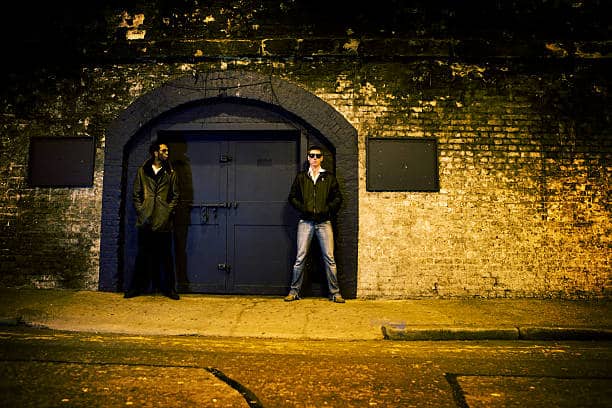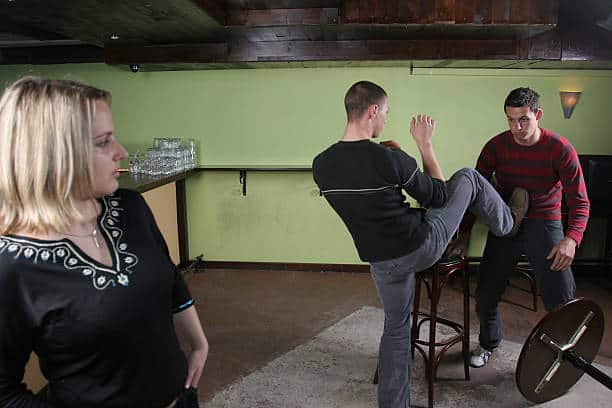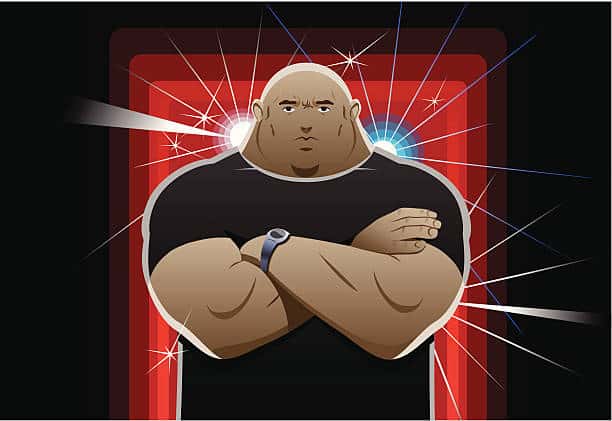Nightclub security is a crucial component of ensuring the safety and well-being of patrons and staff within the vibrant and dynamic atmosphere of nightlife establishments. It encompasses a wide range of responsibilities and protocols designed to maintain order, prevent incidents, and promptly respond to any security-related issues that may arise during operating hours.
Nightclub security personnel (Commonly referred to as Bouncers or Doormen) are the front line of defense in these venues, often serving as the first point of contact for patrons, thereby playing a pivotal role in providing a safe and enjoyable experience. Their roles encompass verifying identification at the entrance, which includes ensuring patrons meet the legal age requirements and compliance with venue policies. Once inside, they continue to monitor the crowd, detect, and address any potential disturbances, and ensure that the atmosphere remains fun and secure.
While nightclub security aims to prevent incidents, they are also well-prepared to respond effectively, when necessary, be it in handling alcohol-related issues, ensuring the safety of VIP guests, or managing unruly behavior.
Overview of Nightclub Security
Nightclub security is a multifaceted field encompassing various roles and responsibilities designed to ensure a safe and enjoyable experience for patrons. One of its primary functions is the verification of identification at the entrance. This critical task involves checking patrons’ IDs to verify that they meet the legal drinking age requirements and adhere to the nightclub’s specific policies. The ability to spot fraudulent identification or underage individuals is paramount in preventing potential issues related to underage drinking.

The first point of contact between patrons and nightclub staff, this role requires professionalism, an eye for detail, and an understanding of local liquor laws and venue policies. A failure to correctly identify and handle entrance procedures can lead to issues, such as underage drinking, which may have severe legal repercussions for both the nightclub and its security personnel. Therefore, nightclub security must be diligent, diplomatic, and meticulous in their approach to this responsibility.
Moreover, this process also serves to create an initial rapport between patrons and security staff. A welcoming and professional interaction at the door sets the tone for the entire evening, creating a positive atmosphere for all. Beyond mere ID checks, security personnel also ensure that any restricted or banned patrons do not gain entry. Effective crowd management techniques play a significant role in achieving this goal, and training for nightclub security personnel often includes protocols for handling patrons who may pose a risk to others or the establishment.
In summary, the role of verifying identification at the entrance is a foundational responsibility within nightclub security. It safeguards against underage drinking, ensures compliance with local regulations, and sets the tone for a secure and enjoyable night out. It exemplifies the significance of this field in creating a positive, controlled, and safe environment for patrons to enjoy their time at nightclubs.
Roles and Responsibilities in Nightclub Security

In the dynamic environment of nightclub security, the roles and responsibilities of the staff are paramount to maintaining a safe and enjoyable atmosphere for all patrons. These dedicated professionals are often the unsung heroes behind the scenes, working diligently to ensure that every guest can unwind, have fun, and feel protected. Their roles are multifaceted, and their responsibilities extend from the entrance to the dance floor. Here are some key roles and responsibilities of nightclub security personnel:
- Entrance Security: Security personnel at the entrance play a critical role in maintaining a safe environment. They check IDs to verify patrons’ age and ensure they meet entry requirements. They may also inspect bags for prohibited items and monitor the flow of people entering the venue.
- Crowd Management: Once inside, security personnel are responsible for managing the crowd. They monitor patrons to ensure they follow safety guidelines, especially during peak hours when the venue is at full capacity. Crowd management includes ensuring patrons don’t become too intoxicated or engage in disruptive behavior.
- Conflict Resolution: Conflicts can arise in high-energy nightclub settings. Security staff must be adept at resolving disputes and confrontations. Their role is to step in when disagreements escalate, ensuring a safe and respectful environment. Proper conflict resolution skills are a valuable asset in this profession.
- VIP Protection: Many nightclubs have VIP sections or special guests who require additional security. Protecting VIPs, both from unwanted attention and potential threats, is a critical responsibility. Security personnel must ensure that these guests enjoy their night without disturbances.
- Preventing Underage Drinking: Nightclubs must adhere to strict regulations regarding the age of their patrons. Security personnel have a duty to verify IDs and prevent underage individuals from accessing alcohol. This helps keep the venue compliant with the law and safe for all guests.
- Drug and Substance Awareness: Security staff should be vigilant about signs of drug or substance abuse on the premises. Their responsibility includes identifying potential issues and responding appropriately to maintain a safe environment.
- Emergency Response: In the event of an emergency, such as a fire, medical incident, or security threat, nightclub security personnel are often the first responders. Their role includes guiding patrons to safety, providing first aid, and alerting emergency services when needed.
- Maintaining Order: Security staff play a crucial role in maintaining order within the nightclub. They ensure that patrons abide by the rules, help prevent overcrowding, and support the overall well-being of the venue.
These roles and responsibilities underscore the importance of nightclub security in creating an environment where patrons can have a memorable and enjoyable experience. Security staff’s vigilance and commitment to their duties are instrumental in making this possible.
The Risks in Nightclub Security

Working in nightclub security can indeed be a challenging and, at times, dangerous profession. The dynamic and high-energy atmosphere of nightclubs, combined with the diverse and often unpredictable behavior of patrons, creates a unique set of risks for security personnel. While the job can be rewarding, it’s essential to recognize and address these dangers.
One of the primary challenges is dealing with intoxicated or unruly patrons. Alcohol and drug consumption are common in nightclubs, and security staff must be prepared to manage situations that can quickly escalate. Dealing with confrontational or belligerent individuals, often in a crowded and loud environment, can be demanding and occasionally lead to physical altercations. Security personnel must possess strong conflict resolution skills and the ability to remain calm under pressure.
Another risk in nightclub security is the potential exposure to illegal activities. While every effort is made to prevent these activities, such as drug use, violence, or other forms of misconduct, security staff may find themselves in proximity to illegal behaviors. This can put them at risk not only from a safety perspective but also legally, as they may need to assist law enforcement in managing these situations.
Additionally, the nightclub environment itself can pose dangers. Venues often have low lighting, loud music, and large crowds, making it challenging to identify potential threats or issues. Security personnel need to navigate through these conditions while staying vigilant.
While the job has its challenges and can be hazardous, it’s important to note that not every moment in nightclub security is dangerous. Many security professionals undergo rigorous training to handle various situations effectively. They often work as a team and have specific protocols in place to manage conflicts and crises. Moreover, the opportunity to interact with diverse individuals and work in a dynamic environment can be rewarding for those drawn to this profession.
In conclusion, working in nightclub security can be dangerous due to the nature of the environment and the behaviors it can attract. However, proper training, strong teamwork, and vigilance can help mitigate these risks and create a safer atmosphere for patrons and staff alike.
Conclusion
The role of nightclub security extends beyond traditional security work. It requires individuals who can communicate effectively, de-escalate conflicts, and uphold a professional and welcoming atmosphere while ensuring the safety of all patrons. As discussed throughout this article, nightclub security personnel take on a wide range of roles and responsibilities, making them an integral part of the overall nightclub experience.
While it’s true that working in nightclub security can be demanding and occasionally hazardous, it’s also a profession that offers the chance to make a positive impact on the community by providing security and peace of mind to patrons. These dedicated professionals work behind the scenes to ensure that everyone can enjoy their night out safely.

